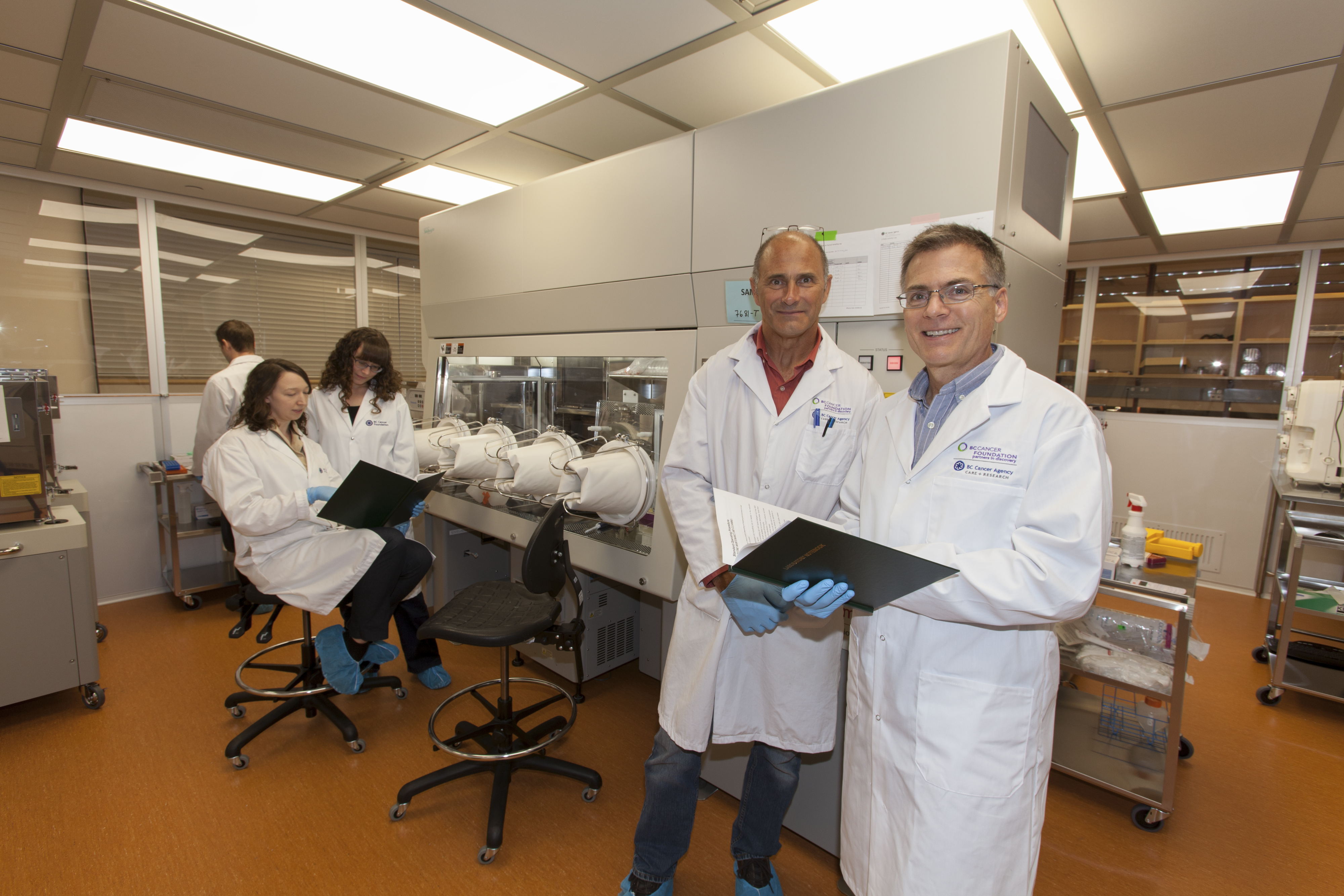Both around the world and in Canada, teams of researchers are working hard to harness the power of a patient’s own immune system to eradicate cancer through immunotherapy. Hailed now as the fourth arm of treatment, a newly funded TFRI pan-Canadian research team hopes this promising approach will give new hope and options to patients who need it the most.
“We want to cure cancer and provide new treatment options for Canadians. Our initial focus will be high-grade serous ovarian cancer, a challenging disease in urgent need of new therapies,” explains project leader Dr. Pamela Ohashi, based at the University Health Network’s Princess Margaret Cancer Centre in Toronto.
High-grade serous cancer (HGSC) is the most common – and fatal – subtype of the disease, comprising around 70 per cent of cases. Prognosis is grim: the five-year survival rate for women presenting with advanced stage disease is less than 30 per cent.
But it’s not all doom and gloom; this cancer is also known to be “immunogenic,” which means that the cancer can elicit an immune response and, therefore, patients may respond well to immunotherapy.
"The immunoTherapy NeTwork (iTNT) brings together a team from across Canada who are experts in many different areas such as immunology and genomics,” says Dr. Ohashi, noting the team is also working with Dr. Mathieu Lupien’s new TFRI-funded triple negative breast cancer project. “Our goal is to understand the disease, and to come up with cutting-edge clinical trials so that Canadians have more treatment options by having the opportunity to participate in clinical trials.”
The group intends to launch a PD-1 checkpoint blockade clinical trial in its first year, and continue to create high-quality information, knowledge and ideas to fuel clinical trials beyond the program’s timeframe during the next four years of funding.
The team will use state-of-the art immunological, proteomic, bioinformatic and genomic approaches to explore changes in the immune response and tumour microenvironment as patients undergo standard treatments and novel immunotherapies.
Collaboration between centres and researchers across Canada will greatly benefit iTNT. For example, Dr. Anne-Marie Mes-Masson (Centre de recherche du Centre hospitalier de l’Université de Montréal), co-principal investigator for TFRI’s pan-Canadian Ovarian Experimental Unified Resource (COEUR), will provide access to more than 2,000 ovarian cancer samples to iTNT through the COEUR biobank.
“It’s really this collection of expertise all focused on one disease that I think is really going to be the power of this network,” says Dr. Ohashi. “It’s all about giving hope and options to cancer patients, and hopefully impacting their survival.”
Known as The Immunotherapy Network, the team will consist of principal investigators from UHN’s PMCC, the Institute du Cancer de Montreal, CRCHUM, BC Cancer Agency as well as working group members and collaborators from elsewhere in Quebec, Ontario, Alberta, British Columbia, and the US.
Dr. Brad Nelson, based at the BC Cancer Agency’s Deeley Cancer Centre in Victoria, is the project co-leader and will lead work that will be aimed at providing subtype-specific immunotherapy for patients with HGSC.
